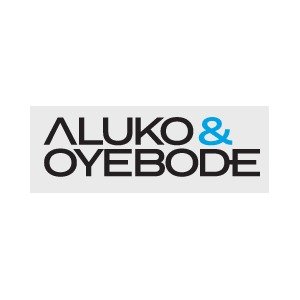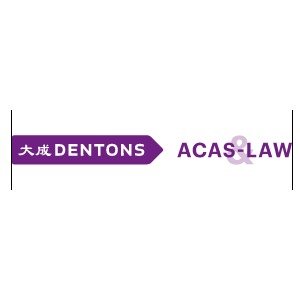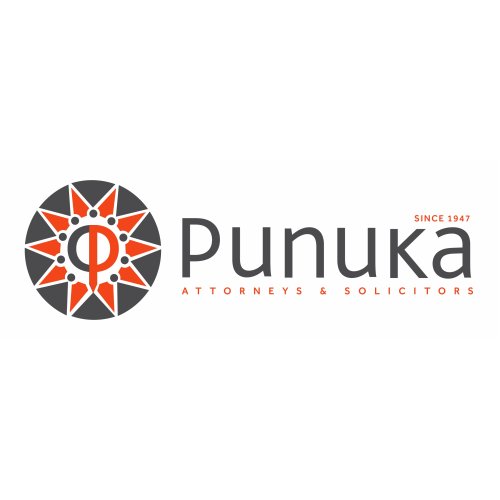Best Biotechnology Lawyers in Lagos
Share your needs with us, get contacted by law firms.
Free. Takes 2 min.
List of the best lawyers in Lagos, Nigeria
Legal guides written by Adeola Oyinlade & Co:
- Procedure and Requirements for Work Permit and Visas in Nigeria
- The Step-By-Step Procedure of How to Apply for Microfinance Bank License Online in Nigeria
- How to Ensure the Smooth Recognition and Enforcement of Foreign Judgments in Nigeria
About Biotechnology Law in Lagos, Nigeria
Biotechnology is a rapidly expanding field in Lagos, Nigeria, with various applications in sectors such as agriculture, healthcare, and environmental conservation. Biotechnology involves the use of living organisms or their products to develop or modify products or processes for specific purposes. Lagos, as the commercial hub of Nigeria, has seen significant advancements and investment in the biotechnology sector.
Why You May Need a Lawyer
While engaging in biotechnology-related activities, there are situations where you may require legal assistance. Here are some common scenarios:
- Intellectual Property Rights: Protecting your inventions, patents, trademarks, or copyrights is crucial in the biotechnology industry. A lawyer will assist you in securing and enforcing your intellectual property rights.
- Regulatory Compliance: Biotechnology involves various regulations and guidelines set by governmental bodies. A lawyer can help navigate these regulations and ensure compliance with all applicable laws.
- Contractual Matters: Whether it's drafting or reviewing contracts, negotiating terms, or resolving disputes, a lawyer will guide you through the legal aspects of agreements with clients, suppliers, or partners.
- Product Liability: In cases where your biotechnology product causes harm or damage, a lawyer can help protect your interests and navigate any legal claims that may arise.
- Research and Development: Legal advice is essential when it comes to collaborations, licensing agreements, or joint ventures in research and development activities in the biotechnology industry.
Local Laws Overview
Biotechnology in Lagos, Nigeria operates within the framework of various local laws. Here are some key aspects to consider:
- The National Biotechnology Development Agency Act (2019) provides for the development, regulation, and commercialization of biotechnology in Nigeria. It establishes the National Biotechnology Development Agency (NABDA) to oversee the implementation of biotechnology initiatives.
- The Biosafety Management Act (2015) regulates the release, handling, and use of genetically modified organisms (GMOs) and products thereof. It aims to ensure the safe development and application of biotechnology while also protecting human health and the environment.
- The Nigerian Patents and Designs Act (1970) governs the protection of inventions and patents. It is essential for safeguarding intellectual property rights related to biotechnology innovations.
- The National Agency for Food and Drug Administration and Control (NAFDAC) regulates the quality, safety, and registration of food, drugs, and related products in Nigeria. Biotechnology products in these categories must meet NAFDAC's requirements.
Frequently Asked Questions
Q1: Are there any restrictions on conducting biotechnology research in Lagos, Nigeria?
A1: Researchers must comply with the guidelines established by the National Biotechnology Development Agency (NABDA) and adhere to the Biosafety Management Act (2015) for conducting research involving genetically modified organisms (GMOs).
Q2: How can I protect my biotechnology invention in Lagos, Nigeria?
A2: You can protect your biotechnology invention by applying for a patent through the Nigerian Patent and Designs Office. Working with a lawyer experienced in intellectual property law is crucial for navigating the patent application process.
Q3: What regulatory approvals are required for the commercialization of biotechnology products in Lagos, Nigeria?
A3: The commercialization of biotechnology products, especially those involving GMOs, requires approval from the National Biosafety Management Agency (NBMA) and compliance with regulations set forth in the Biosafety Management Act (2015).
Q4: What should I do if my biotechnology product is facing legal challenges or claims of harm?
A4: It is essential to consult with a lawyer who specializes in product liability. They will guide you through the legal process, help protect your interests, and ensure you are properly represented.
Q5: Can I collaborate with international organizations or institutions for biotechnology projects in Lagos, Nigeria?
A5: Yes, collaborations with international organizations or institutions are possible. However, it is advisable to consult a lawyer to ensure that all necessary legal considerations, such as contracts and intellectual property rights, are addressed.
Additional Resources
For further resources related to biotechnology and legal advice, consider referring to these organizations and bodies:
- National Biotechnology Development Agency (NABDA) - NABDA Website
- Nigerian Patents and Designs Office - Patents and Designs Office Website
- National Biosafety Management Agency (NBMA) - NBMA Website
- National Agency for Food and Drug Administration and Control (NAFDAC) - NAFDAC Website
Next Steps
If you require legal assistance in the field of biotechnology, here are some suggested steps to consider:
- Identify your specific legal needs related to biotechnology.
- Research and choose a lawyer who specializes in biotechnology law and understands the local regulations in Lagos, Nigeria.
- Schedule a consultation with the lawyer to discuss your case and ensure they have the necessary expertise to assist you effectively.
- Prepare any relevant documentation, such as patents, contracts, or dispute-related materials, to provide to the lawyer during your consultation.
- Collaborate closely with your chosen lawyer, following their advice and guidance throughout the legal process to address your biotechnology-related legal matters.
Lawzana helps you find the best lawyers and law firms in Lagos through a curated and pre-screened list of qualified legal professionals. Our platform offers rankings and detailed profiles of attorneys and law firms, allowing you to compare based on practice areas, including Biotechnology, experience, and client feedback.
Each profile includes a description of the firm's areas of practice, client reviews, team members and partners, year of establishment, spoken languages, office locations, contact information, social media presence, and any published articles or resources. Most firms on our platform speak English and are experienced in both local and international legal matters.
Get a quote from top-rated law firms in Lagos, Nigeria — quickly, securely, and without unnecessary hassle.
Disclaimer:
The information provided on this page is for general informational purposes only and does not constitute legal advice. While we strive to ensure the accuracy and relevance of the content, legal information may change over time, and interpretations of the law can vary. You should always consult with a qualified legal professional for advice specific to your situation.
We disclaim all liability for actions taken or not taken based on the content of this page. If you believe any information is incorrect or outdated, please contact us, and we will review and update it where appropriate.

















